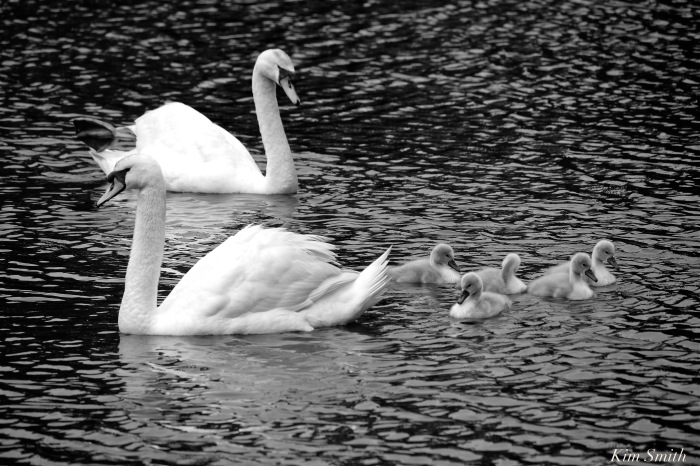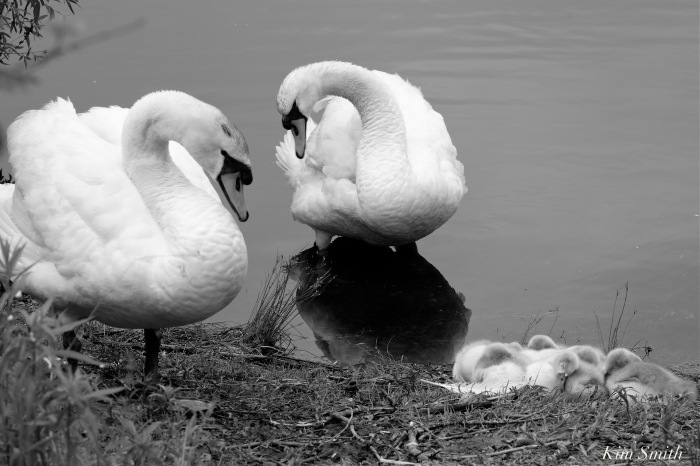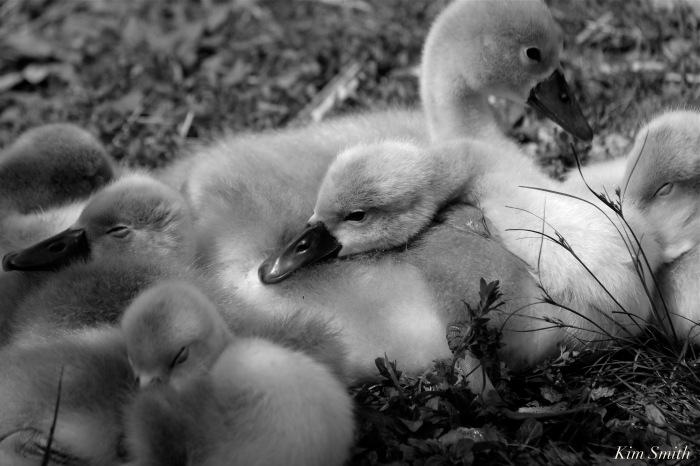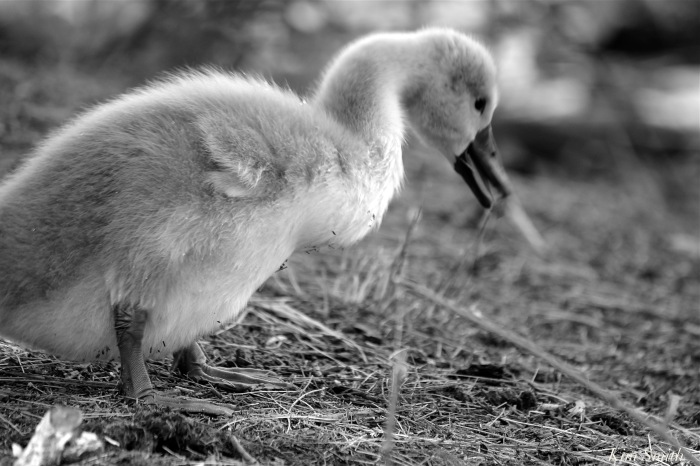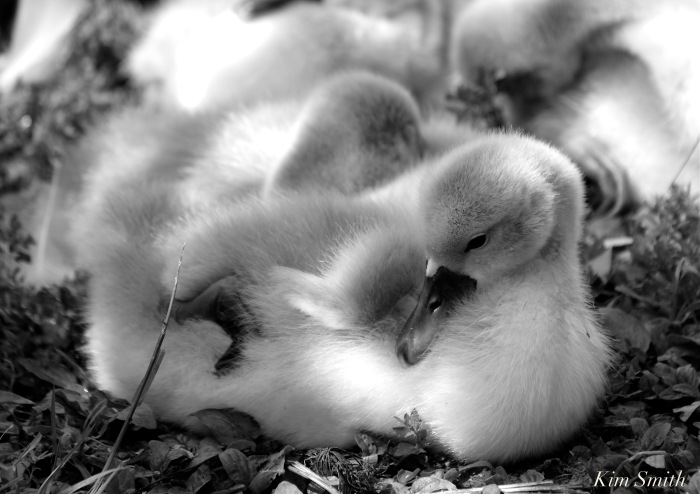 Meet the Swan family. They live on a pond in Eastern Massachusetts. On an island in the middle of the pond, Papa and Mama built a nest made of cattails, reeds, and sticks. For six weeks Mama and Papa Swan took turns sitting on the nest warming, or incubating, the eggs.
Meet the Swan family. They live on a pond in Eastern Massachusetts. On an island in the middle of the pond, Papa and Mama built a nest made of cattails, reeds, and sticks. For six weeks Mama and Papa Swan took turns sitting on the nest warming, or incubating, the eggs.
 Within hours of hatching, the baby swans, called cygnets, are mobile. Precocial refers to animal species in which the young are relatively mature from the moment of hatching. Within a day or two, Mama and Papa take the cygnets to water for their first swim.
Within hours of hatching, the baby swans, called cygnets, are mobile. Precocial refers to animal species in which the young are relatively mature from the moment of hatching. Within a day or two, Mama and Papa take the cygnets to water for their first swim.
 Unlike songbirds, which are born naked, blind, and helpless, cygnets are born with downy soft feathers and with their eyes open. Piping Plovers are another example of a bird species that is precocial. The cygnets will soon outgrow the soft down.
Unlike songbirds, which are born naked, blind, and helpless, cygnets are born with downy soft feathers and with their eyes open. Piping Plovers are another example of a bird species that is precocial. The cygnets will soon outgrow the soft down.
 A family of cygnets is called a clutch or a brood.
A family of cygnets is called a clutch or a brood.
 Two week old swans are sleeping on the bank of the pond. Although cygnets are precocial and relatively independent, they are unable to regulate their body temperature. They rely on warmth from Mom and Dad, and from snuggling each other during nap time.
Two week old swans are sleeping on the bank of the pond. Although cygnets are precocial and relatively independent, they are unable to regulate their body temperature. They rely on warmth from Mom and Dad, and from snuggling each other during nap time.
 Cygnets absorb the last of their yolk into their tummies before hatching, which means they don’t have to eat for several days. Their first meal might be a nibble of an insect caught along the water’s edge.
Cygnets absorb the last of their yolk into their tummies before hatching, which means they don’t have to eat for several days. Their first meal might be a nibble of an insect caught along the water’s edge.
 The cygnets forage for insects and pond vegetation.
The cygnets forage for insects and pond vegetation.

 Precocial birds find their own food, occasionally with instructions from Mom and Dad.
Precocial birds find their own food, occasionally with instructions from Mom and Dad.
 See the little tiny V-shaped wing bud, tucked over the bill. Notice how much proportionately larger are an adult swan’s wings (below). Cygnet’s wings grow rapidly. They usually learn to fly by early fall, at about five months old.
See the little tiny V-shaped wing bud, tucked over the bill. Notice how much proportionately larger are an adult swan’s wings (below). Cygnet’s wings grow rapidly. They usually learn to fly by early fall, at about five months old.
 Back to shore to preen and to warm up.
Back to shore to preen and to warm up.
 An adult swan’s bill has jagged, serrated edges that look like small teeth and are very sharp. Nesting swans can be very aggressive. They will hiss, puff out their feathers to appear larger, flap their wings, move very quickly when angered, and smash their body and wings at a perceived predator. Swans will bite and peck, too. Please keep a safe distance when observing swans, especially nesting swans.
An adult swan’s bill has jagged, serrated edges that look like small teeth and are very sharp. Nesting swans can be very aggressive. They will hiss, puff out their feathers to appear larger, flap their wings, move very quickly when angered, and smash their body and wings at a perceived predator. Swans will bite and peck, too. Please keep a safe distance when observing swans, especially nesting swans.
 Papa and Mama Swan need their rest, too.
Papa and Mama Swan need their rest, too.

